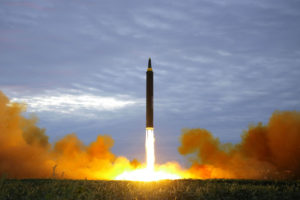
According to a report published by NKNews.org on January 4, 2018, Thailand reported to the United Nations that had denied entry visas to a number of North Korean officials who were looking to enter Thailand in order to attend training in the use of satellite technology.
The incident was described in the Thai report as part of Bangkok’s enforcement of UN Security Council (UNSC) sanctions in an implementation report delivered in December 2017.
The December 12, 2017, refers to UNSC resolutions 2270 (2016), 2321 (2016), 2371 (2017) and 2375 (2017), and according to NKNews.org is Thailand’s first UN sanctions enforcement report since 2009.
“The Department of Consular Affairs rejected the visa applications of four nationals of the Democratic People’s Republic of Korea who were to attend a training course on satellite-related technology in Thailand,” according to the Thai government report.
The UNSC Resolutions prohibit member states from providing training “which could contribute to the DPRK’s proliferation sensitive nuclear activities or the development of nuclear weapons delivery systems.”
Meanwhile, Pyongyang insists that its domestic space programme and satellite technology is “peaceful” and that it has a right to pursue such technologies.
North Korea’s National Aerospace Development Administration (NADA) was sanctioned by the United Nations in 2016 because of its integral role in developing ballistic missile technology capable of delivering nuclear warheads.
The United Nations, through its UN Panel of Experts (PoE), has raised concerns before about North Korean officials taking part in satellite technology and other space-related training in foreign countries.
According to NKNews.org, in 2016 it was revealed that North Korea had sent 30 students over a period of two decades to the Centre for Space Science and Technology Education in Asia and the Pacific (CSSTEAP), headquartered in India.
“(Participation) in the space and atmospheric science and global navigation satellite systems courses is a ballistic missile-related activity prohibited under the resolutions,” NKNews.org quotes the 2016 UN PoE report.
“The report confirms that North Korea is still actively seeking to train its people overseas in disciplines relevant to its nuclear and missile programs,” Andrea Berger, a Senior Research Associate and a Senior Programme Manager at the James Martin Center for Nonproliferation Studies in Monterey, California, told NKNews.org.


